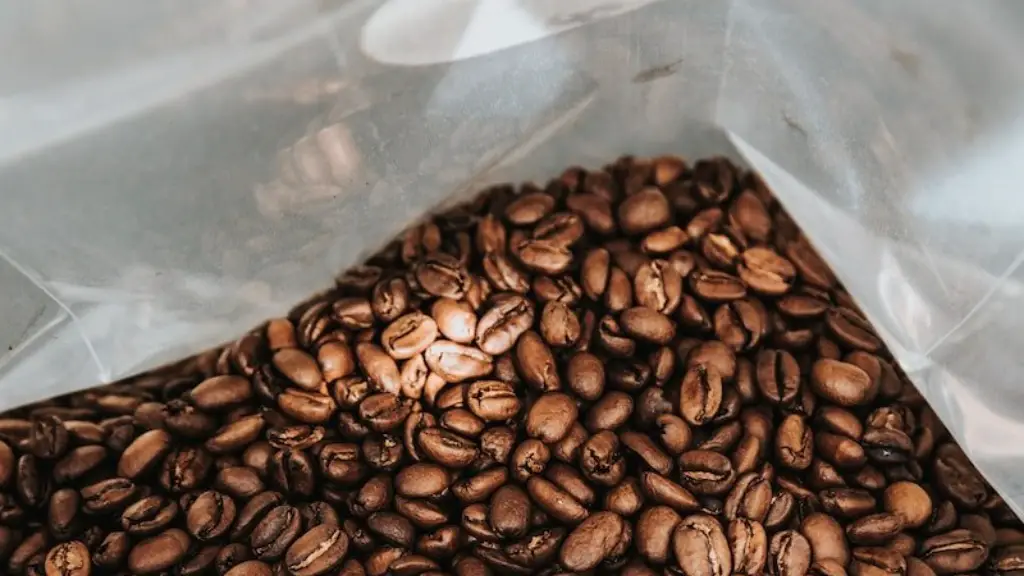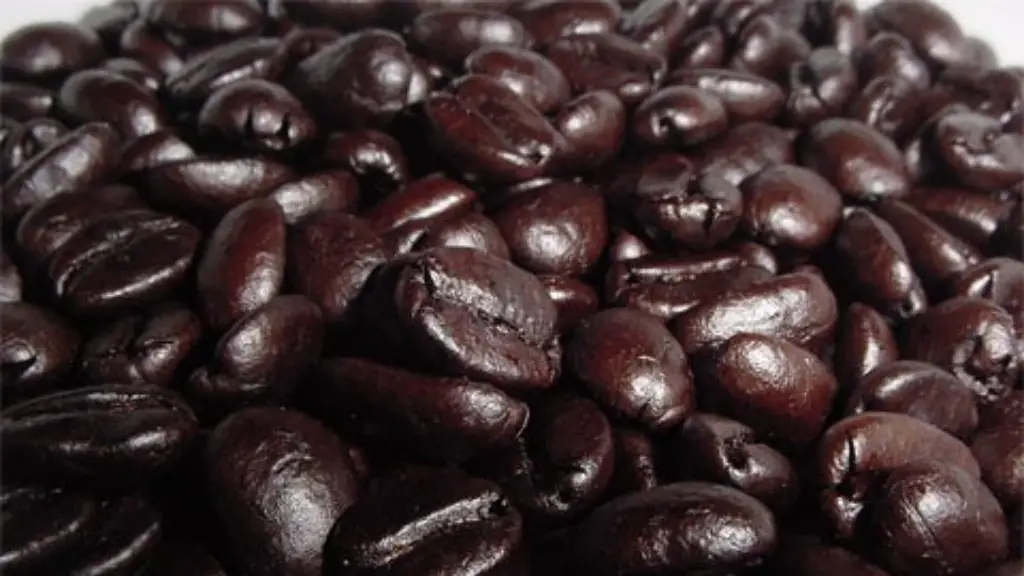How Alcohol and Coffee Interact
Alcohol and coffee interact in different ways in the body. In general, caffeine can increase the absorption of alcohol, while alcohol can reduce the effects of the caffeine. To understand if drinking coffee can help with an alcohol overdose, it is important to understand the dynamics between alcohol and caffeine.
When alcohol is consumed, the body absorbs it through the stomach and small intestines. Once in the bloodstream, it travels to the brain and affects the nervous system, creating a feeling of intoxication. Caffeine, on the other hand, works by blocking the action of adenosine, a brain chemical that helps regulate sleep. This prevents drowsiness and increases alertness.
When alcohol and caffeine are consumed at the same time, they can interact in different ways. The body will absorb both substances more quickly and at higher levels, leading to increased intoxication. In addition, the effects of caffeine will be reduced due to the presence of alcohol in the system, leading to a lessened effect on alertness and focus.
What the Experts Say
When it comes to drinking coffee to counteract an alcohol overdose, most experts do not recommend it. This is because the two substances interact with each other in unexpected ways and can lead to further intoxication and impaired judgment.
The American College of Emergency Physicians (ACEP) cautions against drinking coffee and other caffeinated drinks to reduce the effects of alcohol. While caffeine may temporarily offset the sedative effects of alcohol, it cannot reduce the amount of alcohol in the system or the risk of alcohol poisoning.
The National Institute on Alcohol Abuse and Alcoholism (NIAAA) also advises against drinking coffee or other caffeinated drinks as a way to reduce the effects of alcohol. They point out that while coffee will reduce the sedative effects of alcohol, it can also lead to dehydration and further intoxication, potentially making an alcohol overdose worse.
Risks and Red Flags
While drinking coffee may seem like a safe way to counteract an alcohol overdose, there are potential risks to consider. When alcohol and caffeine are consumed together, the absorption rate is increased, leading to a greater feeling of intoxication. This can make it easier to drink more than intended, leading to a greater risk of alcohol poisoning.
In addition, combining alcohol and caffeine can lead to dehydration. This is because both substances are diuretics, meaning they increase urine production. This can lead to a worsening of symptoms such as confusion, dizziness and nausea.
The best way to avoid an alcohol overdose is to avoid mixing alcohol and caffeine. If you must consume them together, it is important to stay well hydrated and limit the amount of alcohol consumed. Additionally, it is important to be mindful of your own limits and to seek medical care as soon as possible if you believe you or someone else may have overdosed on alcohol.
What the Research Says
While drinking coffee is not recommended for treating an alcohol overdose, there is some evidence that suggests it may reduce the symptoms. A study published in the journal Addictive Behaviors showed that subjects who drank a caffeinated beverage after consuming a large dose of alcohol felt fewer negative effects, such as dizziness and confusion.
Another study published in the journal Psychopharmacology showed that subjects who consumed coffee after a high dose of alcohol felt less intoxicated than those who did not. However, this effect was short-lived and the subjects began to feel more intoxicated after a few hours.
Considering these results, it is possible that drinking coffee after consuming a large amount of alcohol could lessen the severity of acute intoxication, though it should not be used as a substitute for medical care in cases of alcohol poisoning.
Effects on the Body
The effects of combining alcohol and caffeine on the body can vary from person to person. The amount of alcohol consumed and the type of caffeinated beverage can both play a role in the intensity of the effects.
In general, caffeine will offset the sedative effects of alcohol, making it easier to stay awake and alert. In addition, the caffeine can cause a brief feeling of euphoria, which may make it easier to drink more than intended.
However, the combination of alcohol and caffeine can also lead to negative effects, such as dizziness, confusion and dehydration. It can also mask the effects of alcohol, making it more difficult to gauge your own level of intoxication.
Effects on Mental Health
Drinking coffee or other caffeinated beverages to counteract an alcohol overdose can have a negative impact on mental health. This is because the combination of substances can lead to feelings of anxiety, depression and restlessness.
In addition, combining alcohol and caffeine can make it more difficult to concentrate and can interfere with decision making. This can lead to poor impulse control and risky behaviors, such as dangerous driving or unprotected sex.
Overall, drinking coffee may be able to lessen the effects of an alcohol overdose, but it is important to be aware of the potential risks. It is always best to seek medical attention in cases of alcohol poisoning, as it can be dangerous and even life-threatening.
Effects on Performance and Judgment
Drinking coffee to counteract an alcohol overdose can have an effect on performance and judgment. When alcohol and caffeine are consumed together, the effects of both substances can be heightened and the body becomes accustomed to them, leading to decreased performance and poor judgment.
For example, the combination of alcohol and caffeine can lead to impaired coordination and reaction time, which can make it dangerous to drive or operate machinery. In addition, the two substances can make it difficult to process information and make decisions, leading to dangerous or impulsive behaviors.
In general, it is important to avoid mixing alcohol and caffeine, as it can be dangerous and can lead to further intoxication. If you must consume the two substances together, it is important to be aware of the risks and to limit the amount of alcohol consumed.
Long Term Effects
Drinking coffee to counteract an alcohol overdose can have lasting effects on the body and mind. In the short term, it can lead to poor coordination and impaired judgment, increasing the risk of injury. In the long term, it can lead to dependence and tolerance, making it difficult to quit or reduce consumption.
In addition, combining alcohol and caffeine can lead to dependence and withdrawal symptoms, such as headaches and insomnia. This can be especially dangerous in cases of alcohol poisoning, as it can make it more difficult to recover.
Overall, drinking coffee may be able to lessen the symptoms of an alcohol overdose, but it should not be used as a substitute for medical attention. Additionally, it is important to be aware of the risks and to limit the amount of alcohol consumed.
Different Types of Caffeinated Drinks
There are a variety of caffeinated beverages available on the market. Some of the most popular drinks include coffee, energy drinks and soda.
Coffee is one of the most common types of caffeinated beverages and can come in a variety of forms, including espresso, cappuccino, latte and iced coffee. It is important to note that some of these drinks can contain added sugar, which can make it difficult to judge how much caffeine is actually in the drink.
Energy drinks are another type of caffeinated beverage that is popular among young people. These drinks contain large amounts of caffeine, as well as other stimulants such as guarana, ginseng and taurine.
Soda is another popular caffeinated beverage, though it tends to have less caffeine than coffee and energy drinks.
While these beverages can be helpful in reducing the effects of an alcohol overdose, it is important to be aware of the risks and to limit the amount consumed.
Alternatives to Drinking Coffee
There are a variety of alternatives to drinking coffee that can help reduce the effects of an alcohol overdose. These include consuming carbohydrates such as toast, crackers and pasta, as well as hydrating with plain water or electrolyte drinks such as Gatorade.
It is also important to get plenty of rest. This can help the body recover from the effects of alcohol and reduce the symptoms of an overdose.
Lastly, it is important to seek medical attention as soon as possible if you believe you or someone else may have overdosed on alcohol. This may be the only way to reduce the severity of symptoms and avoid long-term consequences.
What You Should Consider
When it comes to drinking coffee to counteract an alcohol overdose, there are a few things to consider. Firstly, it is important to understand the potential risks and side effects. Additionally, it is important to be aware of the amount of caffeine consumed, as it can easily become habit-forming.
It is also important to be aware of your own limits and to seek medical attention as soon as possible if you believe you or someone else may have overdosed on alcohol.
Lastly, it is important to consider natural alternatives to drinking coffee, such as hydrating with plain water, consuming carbohydrates and getting plenty of rest. These measures may help reduce the symptoms of an overdose and can be just as effective as drinking coffee.


